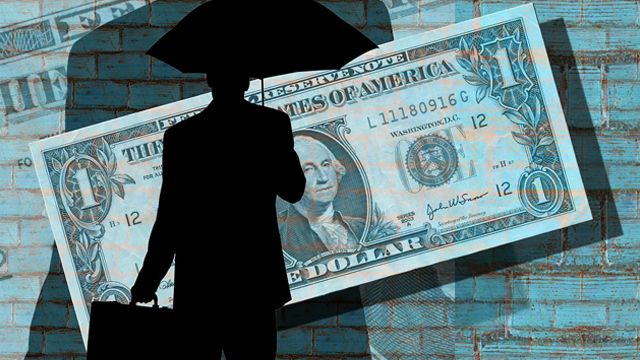
The US House of Representatives has approved a bill allowing politically active nonprofits to shield donors' names from the IRS. (Graphics: Geralt/Pixabay CC0 1.0)
(Updated: Tuesday 5:04 p.m.)
The House of Representatives approved a bill on Tuesday that campaign finance advocates say will open the door to illegal foreign influence on US political campaigns.
Authored by Rep. Peter Roskam (R-IL), H.R. 5053 exempts non-profit organizations — a favorite conduit for political donors who want to remain under the radar — from disclosing the names of contributors to the Internal Revenue Service. Lawmakers passed it on a 240-182 nearly party-line vote. Only one Republican, Rep. Chris Gibson of New York, who is retiring from Congress at the end of his term, opposed the bill. Only one Democrat, Collin Peterson of Minnesota, voted in favor of it.
The likelihood of the bill becoming law appears remote: Democrats, who are trying to make campaign finance transparency an issue this year, have enough votes to block the legislation in the Senate, and, even if the bill did manage to make its way though, it would almost certainly be met by President Obama’s veto pen. But to a number of Democratic opponents, the vote had symbolic significance.
In a year when many voters are wondering “who’s trying to hijack our politics,” Rep. John Sarbanes (D-MD) lectured his Republican colleagues. “You’re trying to move this in the opposite direction,” he declared. “We need more accountability, not less.” Top-ranking Ways and Means Committee Democrat Sander Levin of Michigan said, “The Republican majority believes the more hidden money in politics, the better.”
Although many do so voluntarily, under current law, nonprofits are not obligated to make their donors public. They are, however, required to provide a list to the IRS. Citing the tax agency’s controversial investigation of tea party-affiliated organizations, Roskam and other supporters of his measure (which has 25 co-sponsors, all Republican), say they are trying to prevent “abuses” by the IRS.
“The IRS has run roughshod over people in the past,” said Roskam, citing an incident in which donors to the National Organization for Marriage, an anti-gay marriage organization, became public. Because a list of donors is never supposed to be made public, he argued, submitting one to the tax enforcement agency at all is therefore “unnecessary.” Eliminating the requirement to file what the IRS calls a Schedule B, he argues, would prevent improper leaks by politically motivated government officials.
But a number of government watchdog groups said in a letter to Congress on Monday that Roskam’s bill also would eliminate the only means the government has of preventing foreign interests from illegally funneling money through nonprofits to influence political campaigns.
“The fact that 501(c) groups are required to disclose their donors to the IRS means the groups know that donor information is available as an accountability check against illegal conduct,” said the letter, whose signers include the Brennan Center for Justice, the League of Women Voters and the bipartisan campaign-finance reform group Represent.Us.
That argument was taken up by a number of House Democrats. Roskam’s bill removes “the only safeguard we have against foreign money influencing our elections,” said Rep. Bill Pascrell of New Jersey. Rep. Xavier Becerra (D-CA) raised the prospect of even more unsavory elements — druglords and even ISIS — trying to influence the outcome of US elections under the anonymous cloak of nonprofit groups.
Supporters of the Roskam bill are a Who’s Who of conservative interest groups. As The Huffington Post’s Paul Blumenthal earlier reported, a Koch brothers group has written Congress in support of the measure.
Before the vote, Roskam’s office released another letter endorsing the bill that describes it as “an opportunity to strengthen free-speech protections in light of recent cases of intimidation and mishandling of private information by the IRS.” That missive was signed by dozens of leaders of conservative groups, including Grover Norquist of the Americans for Tax Reform, Chris Cox of the National Rifle Association, Jenny Beth Martin of the Tea Party Patriots and David Bossie of Citizens United.





